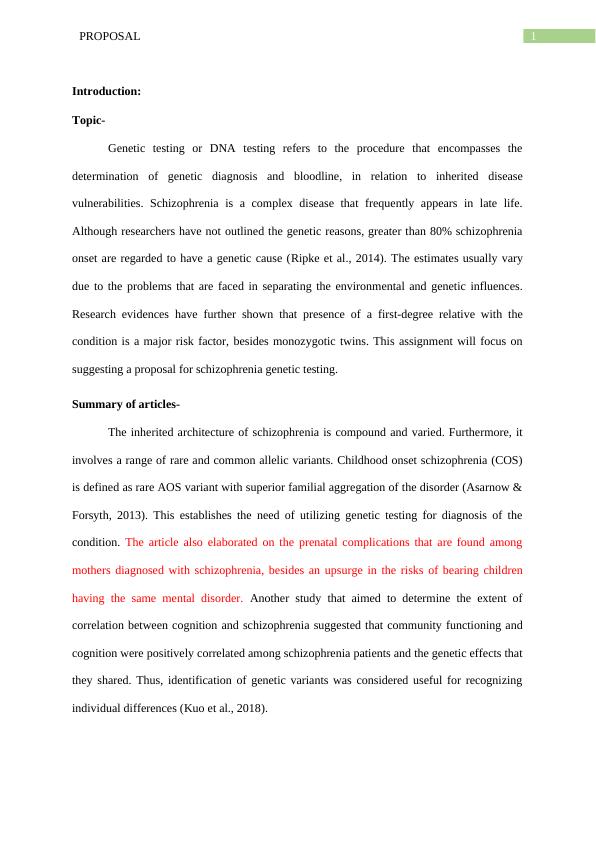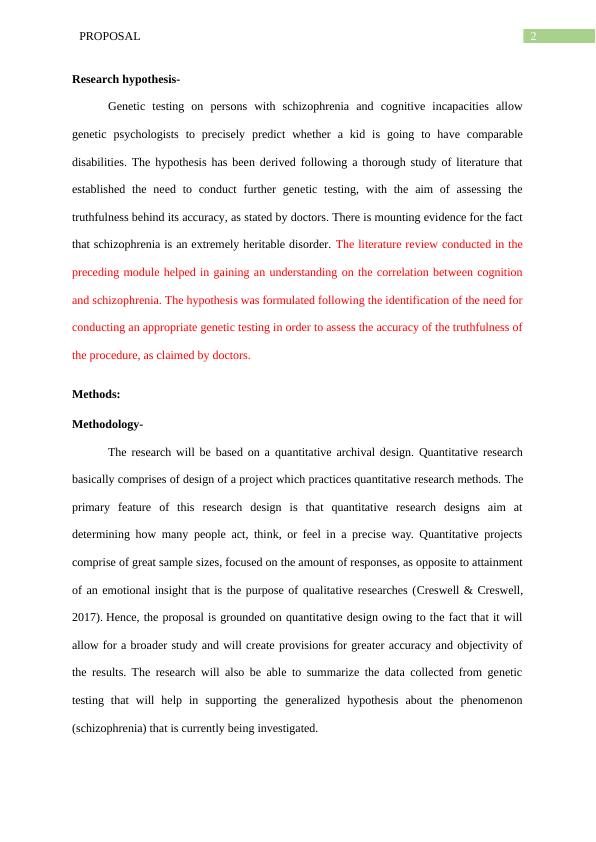Proposal for Schizophrenia Genetic Testing
Submit an outline of a hypothetical study, including critical elements and references.
6 Pages1493 Words246 Views
Added on 2023-06-03
About This Document
This proposal suggests conducting genetic testing for schizophrenia to assess the accuracy of the procedure. The research will be based on a quantitative archival design with a sampling frame of 1200 mothers. The expected results are that mothers with schizophrenia-affected children having cognitive deficits might show chromosomal abnormalities. The proposal also discusses the need for further research to assess the underlying factors that govern first onset of schizophrenia before adolescence.
Proposal for Schizophrenia Genetic Testing
Submit an outline of a hypothetical study, including critical elements and references.
Added on 2023-06-03
ShareRelated Documents
End of preview
Want to access all the pages? Upload your documents or become a member.
Genetic Testing for Schizophrenia: A Research Report
|9
|2202
|114



